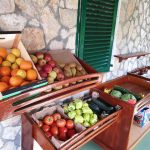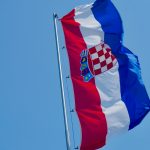Serbia and Croatia talk refugee crisis.
Croatian Minister of Foreign and European Affairs Miro Kovač met on Saturday with his Serbian counterpart Ivica Dačić on the sidelines of an informal meeting of foreign ministers of EU member and candidate states in Amsterdam. “I have discussed with Minister Dačić the relations between Croatia and Serbia. We have agreed that we would work to improve them. It is important that our relations are effective and that we continue to cooperate, especially economically. The issues we have from the past, including the legacy of war, must be solved through appropriate mechanisms. I am sure we will be very effective and successful”, said Kovač after the first meeting with his Serbian counterpart since he took office, reports Jutarnji List on February 7, 2016.
“We have met now for the first time since his appointment. Of course, we did not have a long discussion, but we have concluded that together we need to work on strengthening our bilateral relations, to clearly define something specific which can be achieved quickly, and it is certain that we will continue with our contacts as soon as the elections in Serbia are over”, said Dačić.
In addition to Dačić, during a two-day informal meeting in Amsterdam Kovač had several bilateral discussions with his counterparts, including Philip Hammond (Great Britain), Frank-Walter Steinmeier (Germany) and Karl Erjavec (Slovenia).
After the informal meeting in Amsterdam was over, Kovač said that Croatia supported the idea to reinforce controls at the border between Greece and Macedonia, which could be a long-term sustainable solution if Greece is unable to control its border with Turkey. “We would support the strengthening of controls on the border between Macedonia and Greece. Croatian Prime Minister has accepted the idea of Slovenian Prime Minister Miro Cerar and in this area we need further cooperation”, said Kovač.
“We need a European approach, a European solution, and those of us who are in the European Union must think carefully about how many migrants the EU can accept and where they would be accommodated. For Croatia, it is important that it remains a transit country and not a collection hotspot for refugees”, said Kovač.
Asked whether there was a risk that, if the border between Macedonia and Greece were to be closed, the refugees could move towards Albania and then through Montenegro come to the south of Croatia, Kovač said that was not a likely scenario. “For now, we do not see that as a realistic scenario. At this moment, police forces have a good cooperation. If we were to start protecting the external borders, in this case between Macedonia and Greece, then that border would not be secured only by Croatian police forces, but also by representatives of other European countries which would make it a long-term sustainable approach”, he said.







